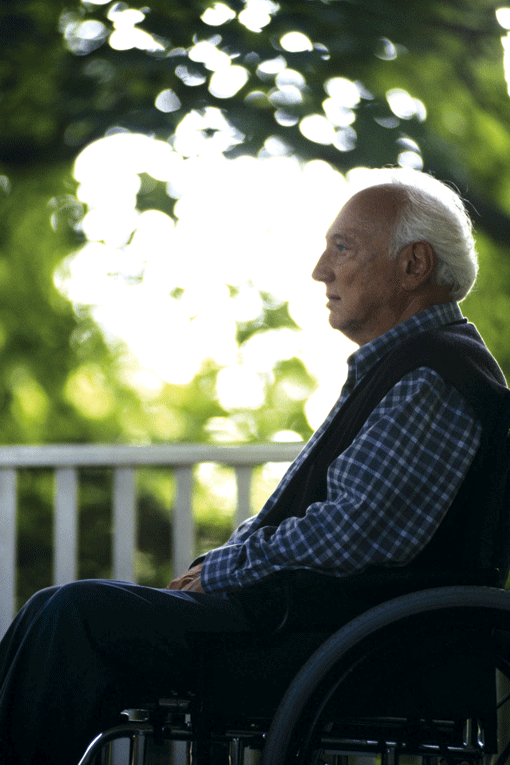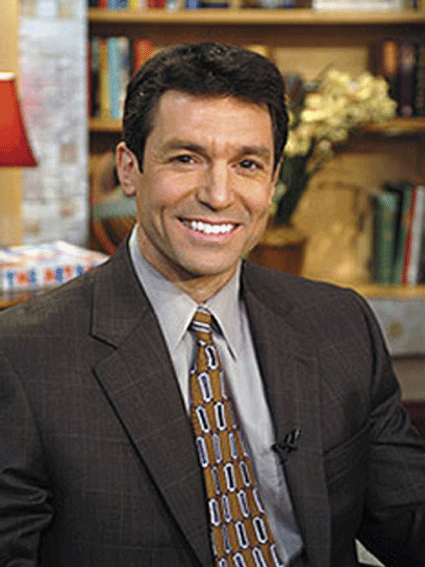
Diet and Health
 Longevity
Longevity
Cup of Life
Longevity, like love, is too often sought in all the wrong places, like anti-aging nostrums and self-help books, when the key to vitality is a simple prescription of eating well, being active, not smoking, getting rest and finding the right person to love
We are a society preoccupied with the arrest of aging and the preservation of youth. But just as youth -- so the saying goes -- is wasted on all the wrong people, so are opportunities for preserving its relevant manifestations wasted on all the wrong fixations.
In this matter, as in most, we are perennially in hot pursuit of the quick and easy fix. Serve us up a promise on the topic, and there is a good chance we’ll swallow it, rarely pausing to chew. Nearly $10 billion is spent annually in the United States on anti-aging skin care products alone.
So it is no surprise that such promises abound. They populate the pages of health magazines monthly. Type “anti-aging products” into the Google search box, and over 1 million sites are retrieved. Drop the restrictive “products” from your search, and your haul is over 15 million sites!
And, of course, book stores are in the vanguard of this anti-aging buffet. Recently, we had “YOU Staying Young” (Free Press, 2007) by Dr. Mehmet Oz (a friend) and Dr. Michael Roizen (I’ve not had the pleasure).
Not long ago, Dr. Andrew Weil gave us “Healthy Aging” (Anchor Press, 2007). And these celebrity authors are just the tip of a literary (if not literal) iceberg. Type “anti aging” into the Amazon search box, and more than 4.000 book titles appear. I rest my case.
I write neither to defend nor challenge the guidance on these innumerable published pages. I simply note that we would have to live a very long time indeed to read all of the available advice on how to live that long.
And yet, to the extent we have an answer to the question of how best to get there from here, the answer is very simple. Take good care of yourself. My apologies to any publisher if I’ve inadvertently given away the ending of somebody’s book.
Yes, my friends, that’s really what it comes down to. Eat well, be active, don’t smoke, get some sleep, find somebody to love who preferably loves you back, and try not to stress out excessively.
But of course, we frown on such humdrum guidance. Give us an active ingredient!
There have been claims made for anti-aging benefits of vitamin C, vitamin E, and more recently, vitamin D. A growing list of exotic fruits and nuts -- acai, noni, goji -- has a coterie of adherents who claim health-promoting and age-defying effects, none truly proven. An almost limitless variety of nutrient and herbal supplements makes claims about prolonging the vitality of our bodies at large, or at least of its more select parts.
 |
By: Dr. David L. Katz* |
There are, to be sure, some tidbits of legitimacy among the over-hyped claims for life-lengthening lotions, potions and programs. Fish oil is on most lists, for instance. I am a proponent of omega-3 supplements for many reasons, and take them myself. But the notion that these supplements meaningfully forestall aging as an isolated intervention is more than a little farfetched. I can think of nothing more decrepit looking than an old salmon -- and they, of course, are loaded with the stuff!
Despite the sum total of scientific advance to date, the human life span -- how long we may hope to live -- has never changed, and is capped by most experts at approximately 120 years. Life expectancy -- that portion of the span we actually live to see on average -- has changed considerably, but for none of the more titillating reasons dear to Madison Avenue. Not an extra minute can be linked reliably to any proprietary lotion, potion, or supplement.
Over the course of the 20th century, life expectancy in the United States increased some 35 years. Roughly five of these are courtesy of the cutting edge of biomedical science. The other 30 are thanks to homely fundamentals of daily living and public health: adequate food supply, clean water, basic sanitation.
With those largely in hand, the focus now turns to elements of lifestyle: diet, physical activity, alcohol use, tobacco use. Data show that the leading causes of premature death in this country and much of the world are, indeed, these behaviors we control. Since poor diet, tobacco use, and inadequate physical activity kill through the intermediacy of chronic disease rather than suddenly, these behaviors are leading causes of lost vitality, of extended suffering and disability as well as death. Failure to take care of ourselves in a limited variety of ways propels us all toward the very ills of aged decrepitude we wish so fervently to avoid.
And ironically, neglect of these behaviors is prematurely robbing our children of the youthful vitality that is rightfully theirs even as we -- their parents and grandparents -- strive to retain and reclaim that youth as our own. Epidemic childhood obesity has converted adult onset diabetes into a condition of childhood, too. More and more signs of ever earlier heart disease risk are in evidence.
As children succumb to what used to be conditions of midlife and beyond, how else to interpret this but to conclude they are aging at an accelerated rate?
We all grow wistful as we raise the cup of life in hopeful toast. But how best to fill that cup nearest to its brim?
There is, alas, no fountain of youth. There is much to lose in the folly of its frivolous pursuit. Not the least being the recognition that we possess far more immediate means of adding life to years, and as many years to life as fall within our grasp.
Time, our fervent yearnings to the contrary notwithstanding, will march on. But for those who pause in railing against this miscarriage of justice to listen, time will tell. It tells that the cup of life is filled closest to the brim not by pursuing the modern day analogues of an elusive fountain, but by bending to the effort of priming an ever-present pump.
My job? I stand here, overlooked more often than not by those rushing past on quixotic quests ... and point to the handle.
* Dr. David L. Katz is an Adjunct Associate Professor of Public Health
and Director of the Prevention Research Center at the Yale University School of Medicine.
He is and Editorial Advisor to Prevention Magazine, Columnist for O, the Oprah Magazine,
and a Medical Consultant to ABC News. He may be reached at www.davidkatzmd.com.